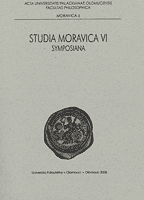Omyl, který se stal objevem (Kuršova Antigona 1946 a následná polemika jako druhý život inscenace)
Mistake Which Became The Discovery (Kurš’s Antigona 1946 and the following polemics as the second life of staging)
Author(s): Vladimír JustSubject(s): Theatre, Dance, Performing Arts
Published by: Univerzita Palackého v Olomouci
Summary/Abstract: Though the Czechoslovak premiere of Jean Anouilh’s play Antigona in Theatre Of 5th May in February 1946 was the event of the season, it was the event full of paradox. We can put in the cathegory “useful” of “productive” mistake. Difficult existential drama where the chorus was substituted by the war in France. In Prague it was directed by ortodox communist and stalinist direktor Antonin Kurš. Never before and after he met so controversional text – and such inconsistent critical reaction. But never before and never after he achieved so remarkable artistic result. After the premiere the first reaction from the viewers and the press were positive. But polemical artikle of A. J. Liehm (Kulturní politika) invoked great critical debate. Liehm from the ortodox communist point view charged the play with collaborant tendencies (celebration of Kreon, Antigona isn’t the equivalent partner fot him) and direktor was charged with diffusion of Fascit poison. It was followed by other reactions (30 together) and wild public debate. Direktor was frighted by this own work which started to live its own autonomons life on the stage and the society. But we must appreciate him and all the creative team (dramaturg J. Kopecký, scenographer J. Gabriel, actors V. Vejražka, M. Matysová and F. le Breux) that two yers before the February putsch they were able to formulate on the stage the timeless topics and conflicts which didn’t loose the ethic acceptance till now.
Journal: Studia Moravica. Acta Universitatis Palackianae Olomucensis Facultas Philosophica - Moravica
- Issue Year: 2008
- Issue No: 6
- Page Range: 141-149
- Page Count: 9
- Language: Czech

